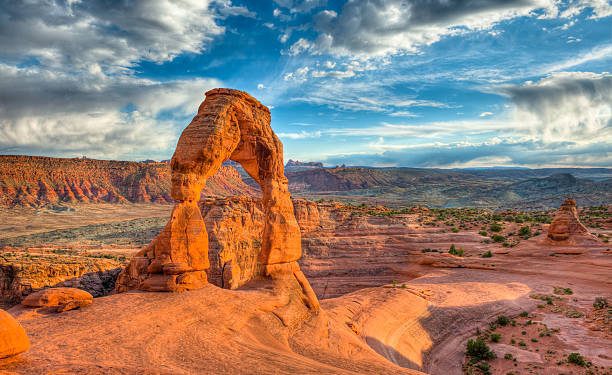Visiting beaches and historical sites, hiking, water diving, and numerous outdoor experiences abound in many cities. In Nigeria (Erin-Ile, Kwara state), some historical sites are Owo river, where people believe a forgotten horn turned to the river, and Olowe shrine where people believe Olowe, a hunter, buried himself alive out of annoyance. Many other cities and settlements have historical sites and symbols, which fascinate many in other countries and make them willing to explore those sites.
Traveling to nice places like Maldives, Texas and Dubai is the dream of many around the globe. Thus, freelance outdoor writing services are rewarding for those who enjoy the outdoor lifestyle. Some of these rewards include traveling, exploring, and spending time at wonderful places. Thus, if you enjoy this, you can try outdoor writing.
In this blog post, we’ll cover everything you need to know about how to become an outdoor writer, including the various types of outdoor writing jobs available, tips for honing your writing skills, and advice for breaking into the industry.
Types of Outdoor Writer Jobs
Outdoor writing encompasses a wide range of topics and styles, from gear reviews to personal essays to travel writing. Here are a few of the most common types of outdoor writer jobs:
- Gear Reviewer: If you have a passion for gear and love testing out new products, a gear reviewer job might be perfect for you. Gear reviewers are responsible for testing and evaluating outdoor equipment, such as hiking boots, tents, and backpacks, and then writing in-depth reviews that help consumers make informed purchasing decisions.
- Personal Essayist: Personal essays are a great way to share your unique perspective on the outdoors and connect with readers on a deeper level. As a personal essayist, you might write about your experiences hiking, camping, or even just spending time in nature, using your voice and style to convey your thoughts and emotions.
- Travel Blogger: Travel blogging is a popular niche within the outdoor writing world, as it allows writers to share their adventures and experiences with a wider audience. As a travel blogger, you might write about your favorite hiking trails, share tips for camping in different regions, or even document your travels around the world.
- Travel Critic: If you have a passion for travel and a critical eye, a travel critic job might be right up your alley. Travel critics are responsible for evaluating hotels, restaurants, and other travel-related businesses, and then writing reviews that help readers make informed decisions about where to stay, eat, and play.
- Travel Editor: If you have experience in editing and a keen eye for detail, a travel editor job might be a great fit for you. Travel editors work with writers to help them refine their work, ensuring that it meets the publication’s standards and fits within the overall editorial vision.
Skills to have for a successful outdoor writing career
No matter what type of outdoor writer job you’re interested in pursuing, there are a few key skills that will help you succeed:
- Strong Writing Skills: The most important skill for any writer is, of course, strong writing skills. You should be comfortable with grammar, syntax, and style, and be able to write in a clear, engaging way that captivates readers.
- Knowledge of the Outdoors: As an outdoor writer, you should have a deep knowledge of the outdoors, including different types of terrain, weather patterns, and wildlife. This knowledge will help you write more convincingly and authoritatively about your experiences.
- Photography Skills: Many outdoor writers also take photographs to accompany their writing, so it’s a good idea to develop some basic photography skills as well. You don’t need to be a professional photographer, but you should know how to take clear, well-composed photos that capture the beauty of the outdoors.
Step-by-step guide for a successful outdoor writing experience
Explore your environment
Many outdoor writers are people who haven’t left the confined of their location. As an outdoor writer, you want to deliver content that is authentic. It’s not necessarily you climb Mount Everest or be a winter wild camper before you enjoy outdoor activities and write about them. But your portfolio and social media pages must show your enthusiasm for outdoor activities.
Write outdoor blog posts
A blog dedicated to outdoor activities demonstrates your passion for life outside. Additionally, it will serve as your portfolio. The blog is there for you to try different writing styles and check the metrics to see how things get better for you. Lastly, don’t substitute social media for blogs as your blogs and email lists you might collect are permanently yours but your social media accounts can be banned or blocked. Additionally, many don’t want to read long texts on social media.
Let social media support your writing
Social media offers a great outlet to share snippets of your blog content and also share images of beautiful experiences you have outdoors. Additionally, social media can lead your audience to your blog where they will see your portfolio. Beautiful images and exciting videos capture people’s attention and make them trust your activities.
Breaking into the Industry
Now that you know what types of outdoor writer jobs are available and what skills you’ll need to succeed, let’s talk about how to break into the industry:
- Build Your Portfolio: The first step to breaking into the outdoor writing industry is to build a portfolio of writing samples that showcase your skills and expertise. You might start by writing for your own blog or submitting guest posts to other outdoor blogs and publications.
- Network with Other Writers: Networking is a key part of any writing career, and the outdoor writing industry is no exception. Join online forums, attend writing conferences, and connect with other writers on social media to build relationships and learn from others in the field.
- Decide the channels for your publication: You need to research a lot at the start of your journey in an outdoor writing career. Consume many magazines, websites, guidebooks, and others to understand the perfect match for your writing style. Together with your passion for outdoor experiences, writing for a publication of your taste makes everything better and saves time from pitching articles to publications that don’t align with your style.
- Pitch to Publications: Once you have a portfolio of writing samples and a network of contacts, start pitching your work to outdoor publications. Look for publications that align with your interests and style, and tailor your pitches to their specific needs and preferences. As a beginner, put in mind many of your outdoor writing content won’t be accepted. Pitch articles or synopses are written and sent to editors to demonstrate your writing skills. The best way to view pitch articles is as writing exercises. Before you start, read the publication’s guidelines and assess yourself with their style and pick a topic to fit in with but not repeat their existing content. You can publish any content that editors do not want on your blog or medium Page.
- Consider Freelancing: Many outdoor writers start out as freelancers, writing for multiple publications and building up their client base over time. Freelancing can be a great way to gain experience and exposure, as well as build relationships with editors and other writers.
- Be Persistent and Patient: Breaking into the outdoor writing industry can take time and persistence. Don’t be discouraged if you face rejection or setbacks along the way. Keep honing your skills, building your portfolio, and networking with others in the field, and you’ll eventually find your place in the industry.
How to get jobs as an outdoor writer
There are many channels and magazines where you can find outdoor writing job opportunities. Here are some popular options to consider:
- Outdoor Magazines: Many outdoor magazines hire writers to contribute to their print and online content. Some popular options include Outside Magazine, Backpacker Magazine, Field & Stream, and Outdoor Life.
- Outdoor Blogs: There are many outdoor blogs and websites that hire freelance writers to contribute articles and blog posts. Some popular blogs include Adventure Journal, The Outbound Collective, and The Dyrt.
- Travel Magazines: Travel magazines often feature outdoor content, such as adventure travel or destination-specific articles. Some popular travel magazines include National Geographic Traveler, Travel + Leisure, and Condé Nast Traveler.
- Gear and Industry Magazines: Magazines that focus on outdoor gear and industry news may also hire writers to contribute articles and reviews. Some popular options include GearJunkie, Outside Business Journal, and SNEWS.
- Online Freelance Platforms: Online platforms such as Upwork, Freelancer, and Fiverr can also be a good source of outdoor writing job opportunities, particularly for freelance writers.
In addition to these channels and magazines, it’s also important to research specific publications that align with your interests and style. Reach out to editors and writers at these publications to inquire about any upcoming job opportunities or freelance assignments. By networking and being persistent, you can increase your chances of finding the right outdoor writing job for you.
Conclusion
Becoming an outdoor writer can be a fulfilling and exciting career path for those who love spending time outside and have a talent for writing. Whether you’re interested in gear reviews, personal essays, travel blogging, or travel criticism, there are many different types of outdoor writer jobs to choose from. By honing your writing skills, building a portfolio of writing samples, networking with other writers, and being persistent in your pursuit of a career in outdoor writing, you can break into the industry and share your love of the outdoors with a wider audience.











